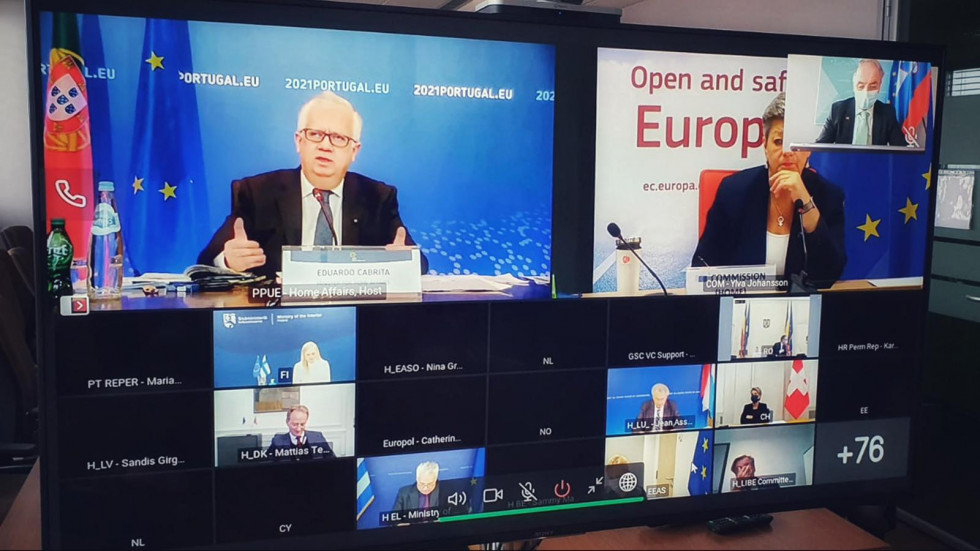By: gov.si
Today the Slovenian Minister of the Interior, Aleš Hojs, and his delegation attended an informal video conference of the EU Home Affairs Ministers. The Portuguese Presidency included three discussion topics on the conference agenda: the next steps in the EU migration and asylum policy, the current state and future of the Schengen area, and the future of Europol.
The presidency thus continues these discussions based on the progress made by the German Presidency, focusing on three key elements for shaping the common EU migration policy: the external dimension, procedures on the EU external border and the concept of responsibility and solidarity.
With regard to the external dimension, Slovenia advocates a common EU approach with a leading and concrete role of the European External Action Service. “Assistance must be target-oriented and adapted to the individual third country, which requires a balanced set of incentives and sanctions. Visa and trade policies and other forms of assistance can be used as tools, and in exchange the third country must cooperate in the repatriation procedures,” the minister noted. The minister also drew attention to the situation in the Western Balkans, which will demand a greater focus in the future, because the conditions in this region also directly affect the situation in Slovenia.
“In providing assistance to the member states on the external border, full advantage should first be taken of the tools we already have at our disposal,” commented Hojs, highlighting some concrete forms of assistance. These include ensuring Frontex performs its tasks consistently, especially on the external EU border, which is exposed the most, and concluding status agreements with the Western Balkan countries. “A suitable mandate should be given to the European Asylum Support Office (EASO) as soon as possible, so it can be more effective in providing operational assistance to the member states. It should be made independent in terms of staff, and member states should also transfer some of their powers in performing asylum procedures to this office.”
The Portuguese Presidency called on the ministers to present concrete forms of assistance in the context of flexible solidarity. According to Hojs, suitable measures supporting flexible solidarity in crisis situations could include providing technological and other equipment, assistance in establishing adequate accommodation capacities in the EU and third countries, assistance in procedures on the EU’s external border, and active support for third countries through operational involvement in repatriation activities. “Of course, a system which will fairly evaluate different solidarity contributions must also be established,” Hojs added.
The discussion on the future of the Schengen area primarily focused on the closed internal borders and calls for restricting inessential travel due to the COVID-19 pandemic. Among other things, internal border controls caused problems in the operation of the internal market. “It is vital to ensure the free flow of goods, which can be achieved through mutual coordination and timely notification,” said the minister, adding that these are the basic principles which apply among the partners in the Schengen area in all situations. »We advocate to effectively use the experiences obtained from the pandemics in the future crises situations and to reintoroduce the internal border controls only as a measure of a last resort,« said Hojs.
Last December, the European Commission proposed a revision of Europol’s mandate, which is among the Portuguese presidency’s priority tasks. Slovenia agrees with the priority treatment of this dossier. It forms a good basis for strengthening Europol’s role and its support for the member states in investigating various forms of organised crime, while ensuring the protection of personal data. “Europol plays an important role in interregional cooperation, and therefore we support the strengthening of all methods that will allow closer cooperation with third countries, such as direct cooperation and exchange of information, as well as posting Europol liaison officials in these countries,” the minister said, adding that for Slovenia this is especially important in relation to the West Balkans. “We are in favour of enhancing Europol’s role in research and innovation and the application of new technologies, which the Slovenian Police will use more extensively. However, if adding increasingly more tasks and powers the agency should also be allocated additional funding and staff, so it can continue to effectively support the investigations across the member states.”

